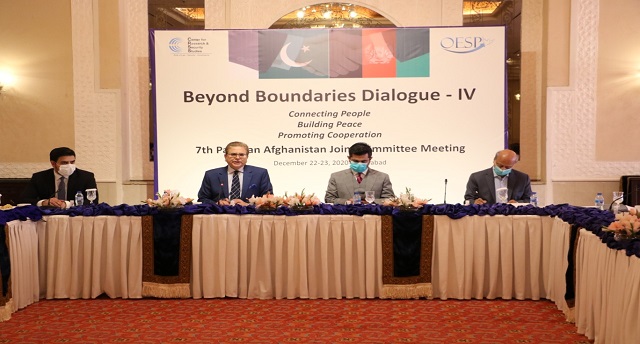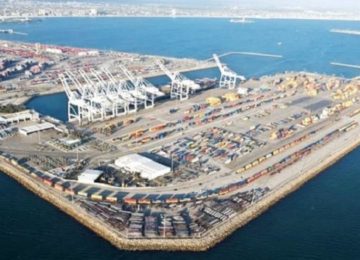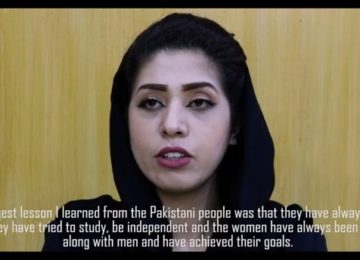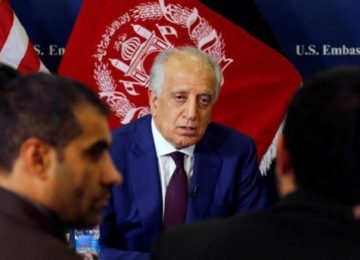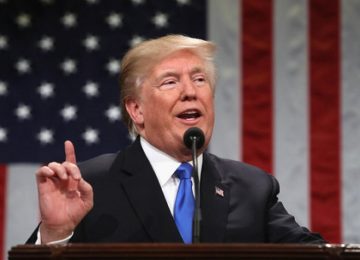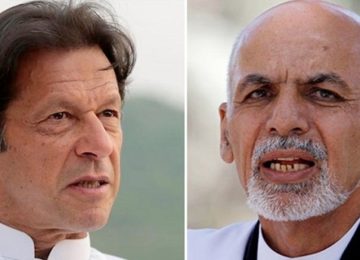December 23, 2020

Pakistan’s “leverage” with the Afghan Taliban remains a recurring theme in bilateral as well as multilateral conversations. Most Afghans somehow tend to place high expectations on Pakistan when thinking of who could force the Taliban into peaceful negotiations. They believe even a nod from Pakistan can make the Taliban militia fall in line. But Dr. Moeed Yousaf, PM’s Special Assistant on National Security, says Pakistan has done whatever it can but the world should not have unrealistic expectations from Pakistan.
In a candid conversation with the members of a Track 11/1.5 delegation Yousaf spelt out five messages as far as Pakistan is concerned; the fence on the border is an agent of trust and connectivity. Since a lot of mistrust is rooted in cross-border movements, better border management help take care of it.
Secondly, Pakistan has no favorites at all in Afghanistan. We will accept whatever Afghan stakeholders hammer out among themselves at Doha. It is all in your hands, said the advisor.
Thirdly, Yousaf dismissed the notion of Pakistan’s hegemonic intentions vis a vis Afghanistan. How is that possible if we have repeatedly urged the international community to stay engaged with Afghanistan and also called on the US for a “responsible withdrawal” from Afghanistan, asked Dr. Yousaf.
Fourth , Pakistan’s primary focus is on economic security because of the geographical proximity of Karachi and Gwadar to Afghanistan and Central Asia. This remains the cheapest and closest option but is of no use we if cannot take advantage of it. That is possible only if Afghanistan is at peace, Dr. Yousaf said, underlining that regional connectivity is his country’s goal right now.
For achieving this goal, Track II processes, instead of running parallel to Track I, can assist by providing respective governments with targeted policy proposals.
For that, he exhorted the Afghan delegates, the best course would be to somehow make the conflicting US and Chinese interests “inter-dependent” in Afghanistan. And this can happen only if the Afghan stakeholders can play it right.
Fifth, Afghanistan is an independent country and can have relations with India as it pleases but there can be no compromise if India uses the Afghan soil for terrorism in Pakistan. The Dossier we have produced on the Indian role in subversion inside Pakistan contains hard evidence.
Shinkai Karokhel, a member of Parliament, said opportunities of cooperation were all around only if peace could return to her country. “There are more excuses to work together with Pakistan than confrontation,” Ms Karokhel observed. We expect Pakistan to use its leverage with the Taliban so that they don’t fiddle with the liberties and the progress Afghan women at large have achieved in the last two decades or so, she said.
Ambassador Muhammad Sadiq, Prime Minister’s Special Representative for Afghanistan, explained the multiple confidence-building measures (CBMs) Pakistan has taken in the last few months to help ease pressure on the transit trade traffic and improve visa facilities at Pakistani missions in Afghanistan.
These include: introduction of liberal and friendly visa regime for Afghanistan, making it easy for Afghans to do business and open bank accounts inside Pakistan, decision to open 12 border markets with Afghanistan, and pipeline projects like tele-medical centers in Afghanistan and railway link between the countries. Sadiq assured that the progress on bilateral front would pick pace in coming months.
“Complex issues accumulated over years would take some time for resolution with strategic patience.” Sadiq underlined while speaking to the 7th Pakistan Afghanistan Joint Committee (PAJC) meeting, spearheaded by Center for Research and Security Studies (CRSS) and Organization for Economic Studies and Peace (OESP).
Trade is and should always be the connecting link between the two nations. It also promotes people to people contacts, along with a lot of economic opportunities for the people, particularly the ones residing in border areas. We are also looking into investing into each other countries, which reinforces our push for increased trade, paving way for shared stakes and mutual interests. This in turn would materialize into durable peace and sustainable development in the region, stated Sadiq.
He further stated that Islamabad’s seriousness in mending trust deficit and starting a new chapter in the bilateral relationship with Kabul is reflected in the number of steps the Government of Pakistan have initiated within last six months.
Both Yousaf and Sadiq, nevertheless argued that administrative glitches or mismanagement at certain levels do not justify a whole narrative against Pakistan, as one often comes across in the Afghan media. Problems are always there , we try to fix them too. But they should not be projected as a policy by the state of Pakistan, which is changing and more focused on geo-economics than ever before, they said.
Published under an arrangement between Afghan Studies Center (ASC) and MATRIX MAG.



